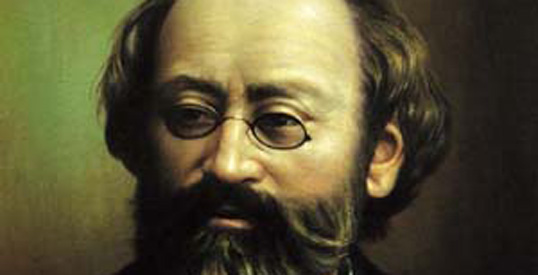Max Bruch, a luminary of the Romantic era, left an indelible mark on classical music with his captivating compositions and innovative approach to melody. Born on January 6, 1838, in Cologne, Germany, Bruch displayed prodigious musical talent from an early age. His father, a lawyer and amateur musician, recognized his son’s gift and provided him with a solid musical education.
Bruch’s formal training began at the age of nine when he entered the Cologne Conservatory. Under the tutelage of renowned composers such as Ferdinand Hiller and Carl Reinecke, he honed his skills in composition, violin, and piano. By the time he graduated, Bruch had already composed several works, showcasing his innate talent for melody and orchestration.
In 1858, Bruch embarked on a successful career as a conductor and composer. His early compositions, including his first symphony and opera, garnered attention for their lyrical beauty and emotional depth. However, it was his Violin Concerto No. 1 in G minor, completed in 1866, that catapulted him to international fame. This iconic work, characterized by its soaring melodies and virtuosic passages, remains one of the most beloved concertos in the violin repertoire.
Despite his initial success, Bruch faced challenges throughout his career. He struggled to find lasting positions as a conductor and frequently clashed with authorities over artistic matters. Nevertheless, he continued to compose prolifically, producing symphonies, concertos, chamber music, and choral works.
In 1880, Bruch accepted a position as the director of the Liverpool Philharmonic Society, where he remained for three years. During his tenure, he premiered several of his own compositions, including his Scottish Fantasy for violin and orchestra. Despite his contributions to the musical life of Liverpool, Bruch’s time there was marked by financial difficulties and personal struggles.
Throughout his life, Bruch maintained a deep reverence for tradition while also embracing elements of innovation in his compositions. He was deeply influenced by the works of Johann Sebastian Bach, Ludwig van Beethoven, and Felix Mendelssohn, whose Romanticism resonated deeply with him. However, Bruch was not afraid to experiment with form and harmony, incorporating folk melodies and exotic scales into his music.
In addition to his Violin Concerto No. 1, Bruch’s other notable compositions include his Scottish Fantasy, Kol Nidrei for cello and orchestra, and his choral masterpiece, “Odysseus.” Despite his prolific output, Bruch never achieved the same level of recognition as some of his contemporaries, such as Johannes Brahms and Richard Wagner. However, his influence on subsequent generations of composers, particularly in the realm of violin music, cannot be overstated.
Max Bruch spent his later years in relative obscurity, composing and teaching in Berlin until his death on October 2, 1920. Although he may not have received the acclaim he deserved during his lifetime, his music continues to enchant audiences around the world with its timeless beauty and emotional resonance. Today, Max Bruch is remembered as one of the most gifted melodists of the Romantic era, whose compositions continue to inspire and captivate listeners with their enduring brilliance.


Comments are closed